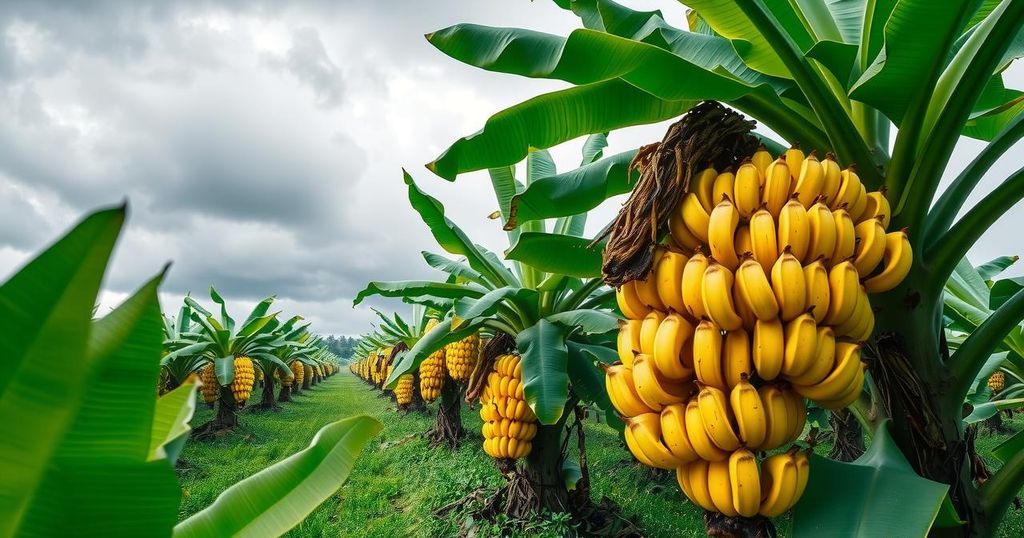Research from the University of Exeter indicates that climate change could render banana cultivation unsustainable in Latin America and the Caribbean by 2080. The study highlights the critical need for adaptation strategies due to the socioeconomic challenges faced by producers and suggests measures to assist in managing climate risks.
New research conducted by the University of Exeter highlights the impact of climate change on the banana export industry in Latin America and the Caribbean. The report, titled “Socioeconomic Constraints to Climate Change Adaptation in a Tropical Export Crop”, reveals that by 2080, over 60% of current banana-producing regions will face severe challenges in cultivating the fruit unless immediate actions are taken to address climate change.
The study emphasizes that labor availability and existing infrastructure will significantly hinder adaptation efforts. Most banana production occurs near populated areas and ports, which restricts the relocation of plantations to more favorable locations. Consequently, the report indicates that urgent interventions are needed to mitigate these challenges.
Utilizing satellite imagery, researchers assessed banana production trends and discovered that climate change would diminish optimal growing regions, decrease yields, and expose workers to extreme temperatures. Among the countries analyzed, Colombia and Costa Rica are projected to be the hardest hit, while Ecuador and certain regions of Brazil may experience lesser effects.
To adapt to these challenges, the study recommends implementing various strategies. Suggestions include expanding irrigation infrastructure, developing heat- and drought-resistant banana varieties, and providing assistance to producers in effectively managing climate-related risks.
In summary, climate change poses a significant threat to the banana export industry in Latin America and the Caribbean, with research indicating dire outcomes by 2080. Urgent interventions are essential to address the socioeconomic constraints faced by the industry. Effective adaptation strategies, such as infrastructure improvement and the development of resilient banana varieties, are vital for safeguarding this crucial agricultural sector.
Original Source: www.freshfruitportal.com




